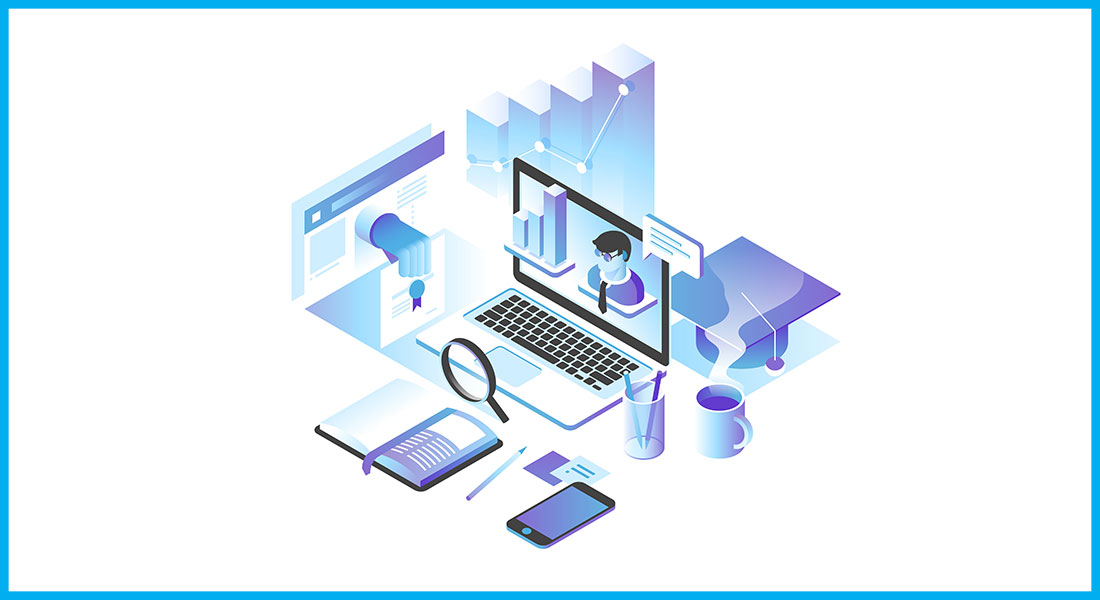How to Harness the Power of eLearning Templates to Boost Corporate Training Efficiency
By leveraging the benefits of eLearning templates, corporate organizations can unlock their full potential and drive continuous learning and growth within their workforce. Read on to explore how utilizing these templates can provide a strong foundation for delivering effective training programs.

In today’s fast-paced corporate world, where upskilling and continuous learning are vital for staying competitive, eLearning has emerged as a game-changer. With the advent of technology, eLearning templates have become an invaluable resource for corporate organizations. Ready-to-use eLearning templates offer a plethora of benefits that can significantly enhance your course design process. This blog will explore the advantages of utilizing eLearning templates and how they can revolutionize training and development initiatives.
Do You Intend to Accelerate Training Initiatives? Don’t Forget About eLearning Templates!
Here are a few advantages to begin with –
- Time and cost efficiency
- Customizability, consistency, and branding
- Scalability and flexibility
- Interactivity and engagement
- Mobile compatibility and accessibility
5 Crucial Advantages of Using eLearning Templates
1. Time and Cost Efficiency
One of the most significant advantages of eLearning templates is their ability to streamline the course development process. Templates provide pre-designed layouts, structures, and interactive elements, saving considerable time and effort in creating training materials from scratch. They eliminate the need for starting from a blank canvas, allowing the course developers to focus on content creation and customization.
Moreover, utilizing eLearning templates significantly reduces the costs associated with outsourcing course development or hiring specialized professionals. Organizations can allocate their resources more efficiently by leveraging existing templates and focusing on customizing the content to suit their specific needs. This cost-effective approach allows organizations to deliver high-quality training without incurring excessive expenses. Check out this short video to understand the importance of eLearning templates in brief.
2. Customizability, Consistency, and Branding
Maintaining consistency across various training modules and courses is crucial for corporate organizations. eLearning templates provide a standardized framework that ensures a consistent look and feel throughout the course. By incorporating brand elements such as logos, color schemes, and fonts, templates help reinforce the organization’s identity and create a cohesive learning experience. Consistency in design and branding also enhances learners’ engagement, as they can easily navigate through different courses without confusion.
3. Scalability and Flexibility
eLearning templates offer unparalleled scalability and flexibility, making them ideal for corporate organizations with diverse training needs. Whether it’s onboarding new employees, compliance training, or skill development programs, templates can be easily customized to meet specific requirements. They allow training managers to adapt and modify the content to address the ever-evolving needs of the organization without the need for extensive redesign or redevelopment. This scalability enables efficient training delivery to a large number of employees, regardless of geographical locations or time zones.
→ Download eBook Now: Rapid eLearning Design for Quick Rollout
4. Interactivity and Engagement
Engaging learners and maintaining their interest is a constant challenge in any training program. eLearning templates provide a range of interactive features, multimedia elements, and gamification options that make the learning experience more enjoyable and immersive. Templates offer pre-built interactions such as quizzes, assessments, simulations, and videos, which can be seamlessly integrated into the training materials.
For instance, a template for product training may include interactive simulations, drag-and-drop activities, or branching scenarios that allow learners to practice using the product in a risk-free environment. The interactive nature of these templates enhances knowledge retention, promotes active participation, and drives learner motivation.

5. Mobile Compatibility and Accessibility
In today’s mobile-driven world, employees expect the flexibility to access training materials anytime, anywhere, and on any device. eLearning templates are designed to be mobile-friendly and responsive, ensuring optimal viewing and interaction across a range of devices, including smartphones and tablets. This compatibility empowers learners to engage with the training content at their convenience, whether in the office, traveling, or working remotely. Additionally, templates can be made accessible to learners with disabilities, complying with accessibility standards and fostering inclusivity within the organization.
For example, a template for leadership training and development can be accessed on both desktop computers and mobile devices, enabling busy executives to engage with the content at their convenience, whether they are in the office or traveling.
How to Utilize eLearning Templates for Various Types of Training Sessions
1. Compliance Training Templates
Compliance training ensures employees understand and adhere to industry regulations, legal requirements, and ethical standards. Pre-built compliance training templates offer a standardized approach to delivering essential information and assessing learners’ understanding of compliance topics. These templates may include modules on data privacy, workplace safety, anti-harassment policies, anti-money laundering, and more. Interactive elements such as case studies, scenarios, and assessments are often integrated to reinforce learners’ knowledge and decision-making skills.
2. Soft Skills Training Templates
Soft skills, such as communication, teamwork, leadership, and time management, are crucial for personal and professional growth. Pre-built soft skills training templates offer a range of modules that address specific skill areas. These templates often incorporate multimedia elements, interactive exercises, and real-world scenarios to facilitate experiential learning. Soft skills training templates can be customized to align with the organization’s specific competency frameworks and desired learning outcomes.

3. Employee Onboarding Templates
Employee onboarding is a critical process for introducing new hires to the organization’s culture, policies, and procedures. Pre-built onboarding templates provide a structured framework that covers essential topics such as company background, values, code of conduct, and HR policies. These templates often include interactive elements like welcome videos, quizzes, and assessments to ensure new employees gain a comprehensive understanding of their roles and responsibilities.
4. Product or Service Training Templates
Product or service training is essential for equipping employees with the knowledge and skills to effectively promote and support the organization’s offerings. Pre-built product training templates provide a structured approach to training employees about product features, benefits, target markets, and competitive differentiators. These templates often include interactive product demonstrations, simulations, and assessments to reinforce understanding and application.
Wrapping Up!
Organizations can select templates based on their specific training needs and customize them to align with their branding, content, and learning objectives. Utilizing these templates saves time, ensures consistency, and provides a strong foundation for delivering effective and engaging training programs. When we are talking about templates, how can we leave rapid eLearning behind? After all, one of the significant reasons why it’s called “rapid eLearning” is because of how templates are utilized seamlessly to create high-quality training courses without compromising on quality. If you wish to learn more about rapid eLearning, here’s an eBook to help you sail your boat. Check it out now!




